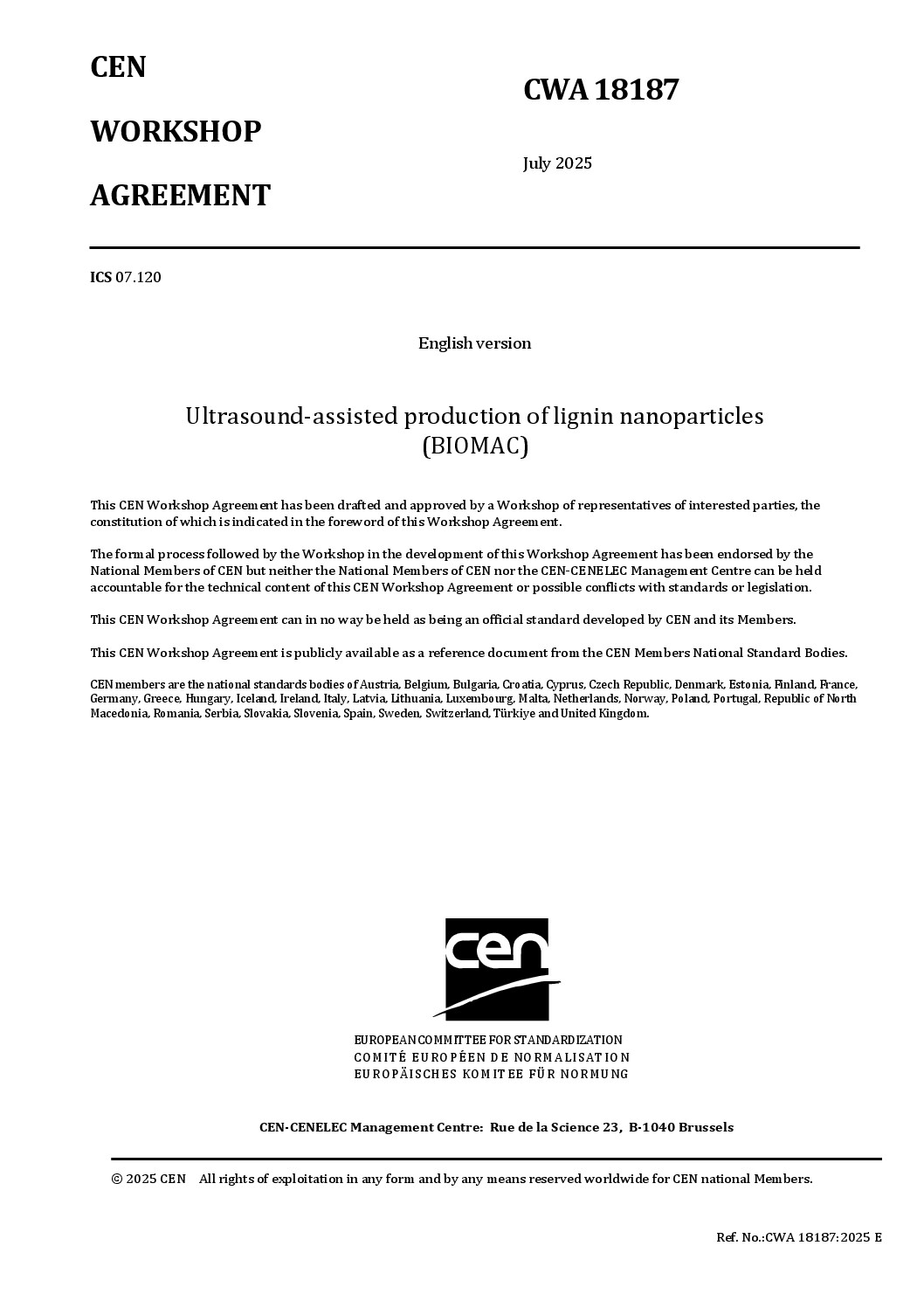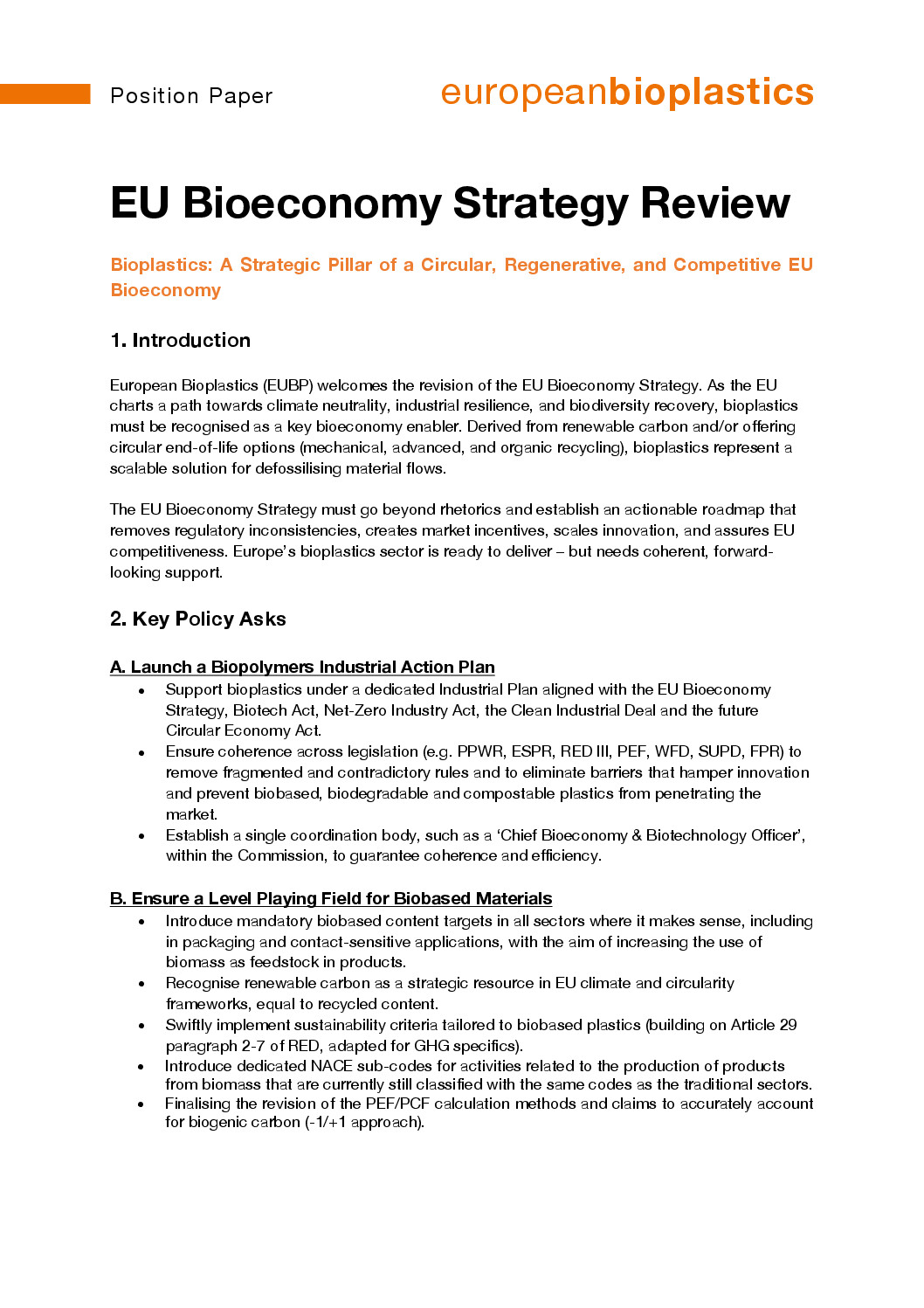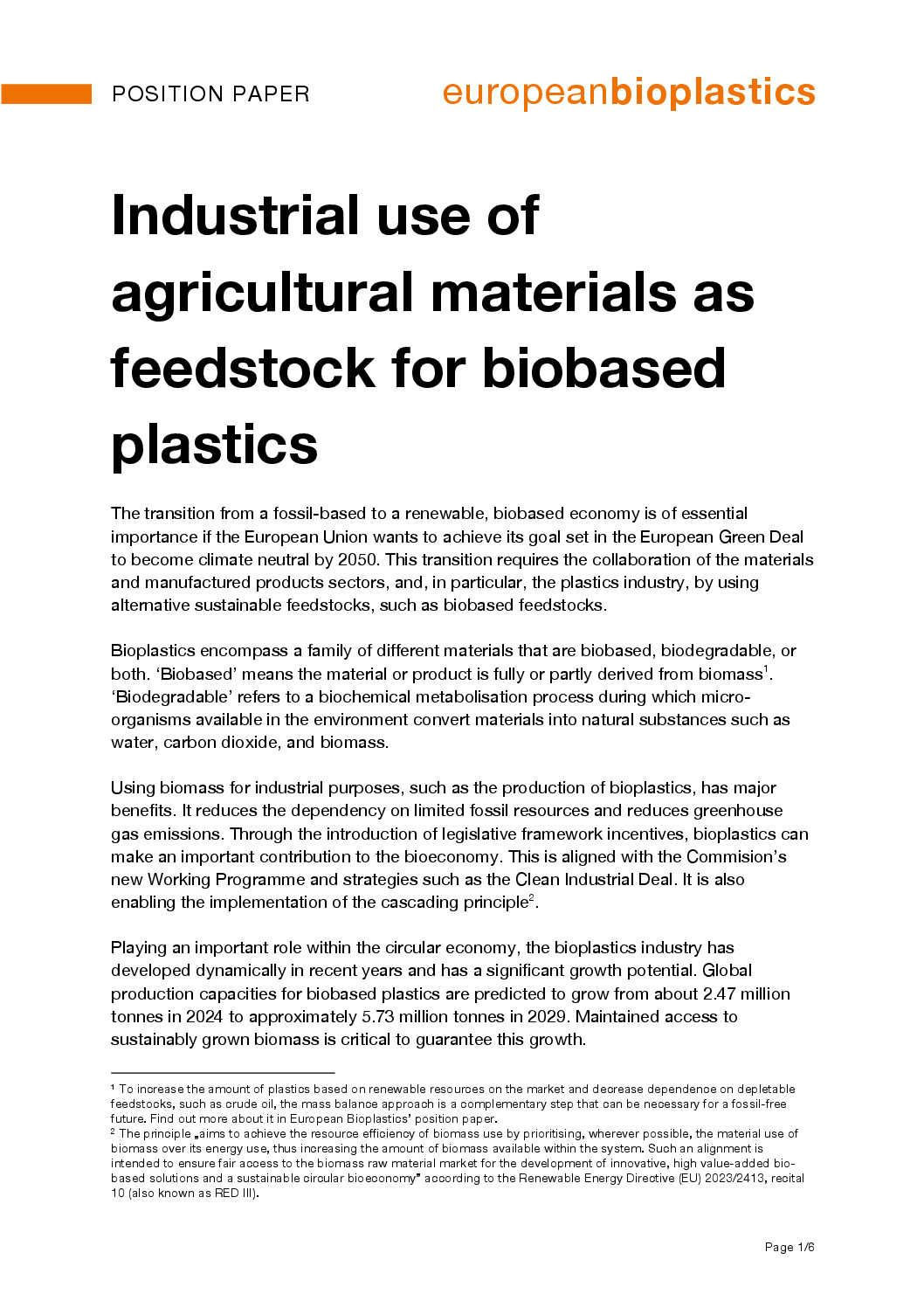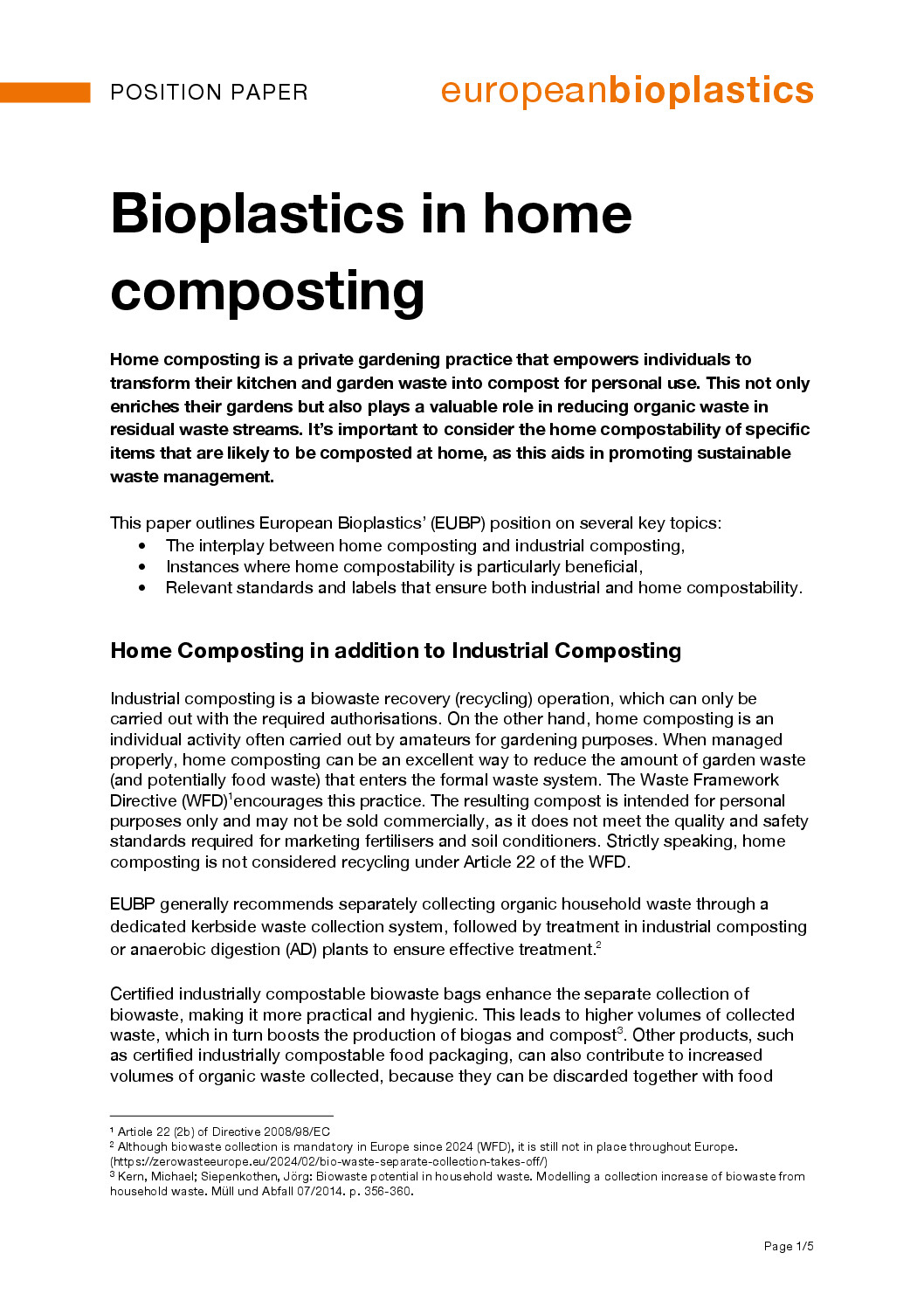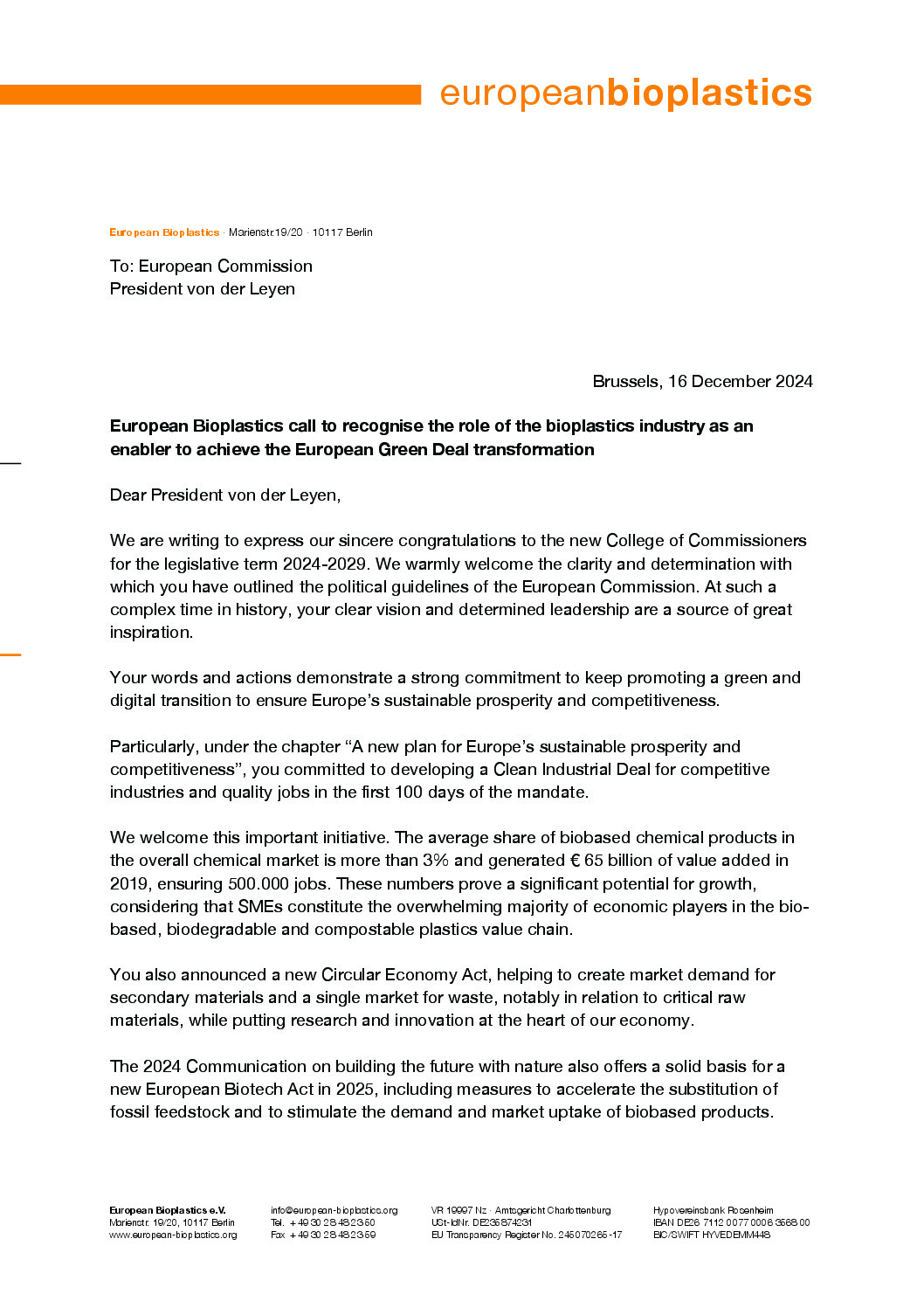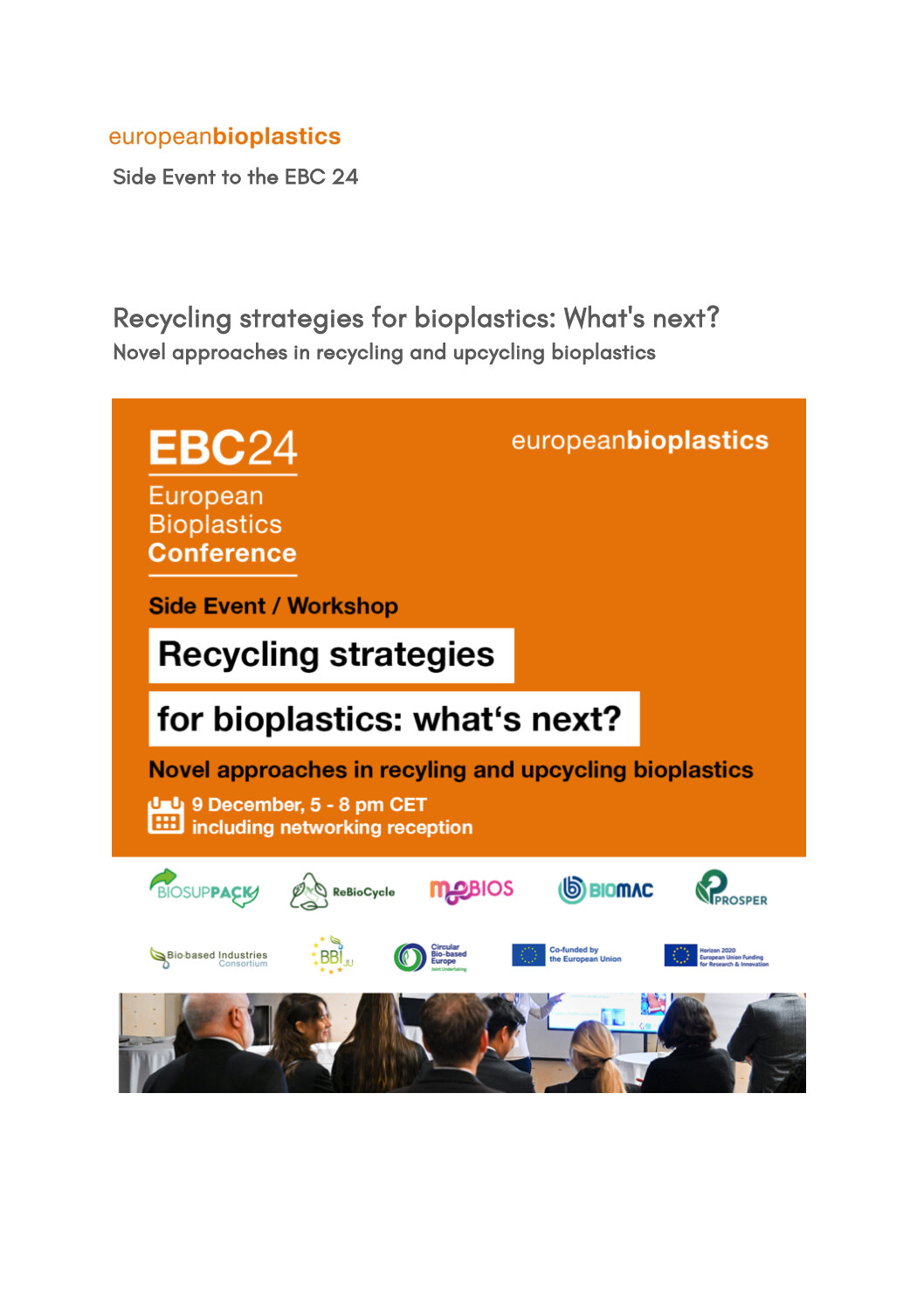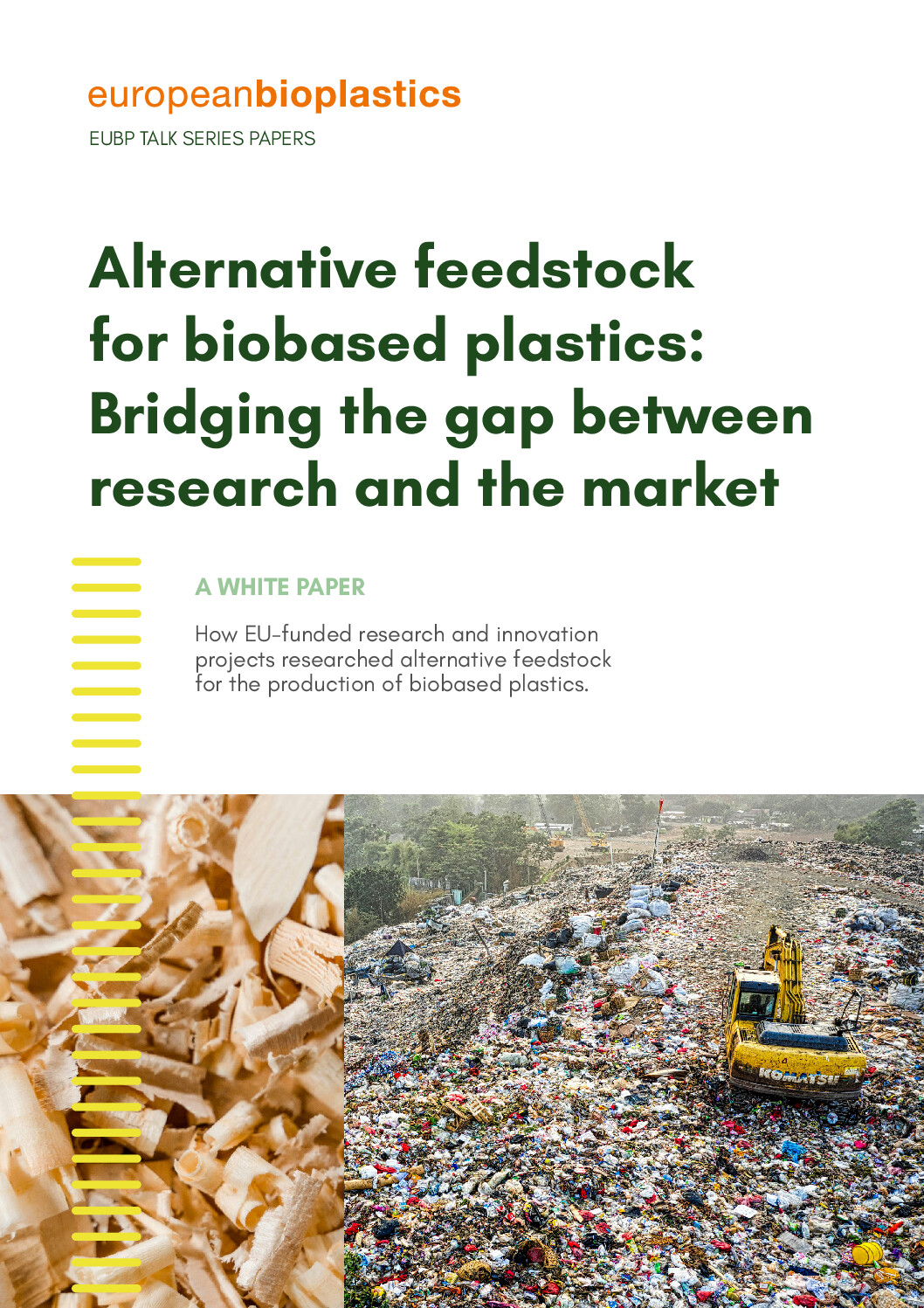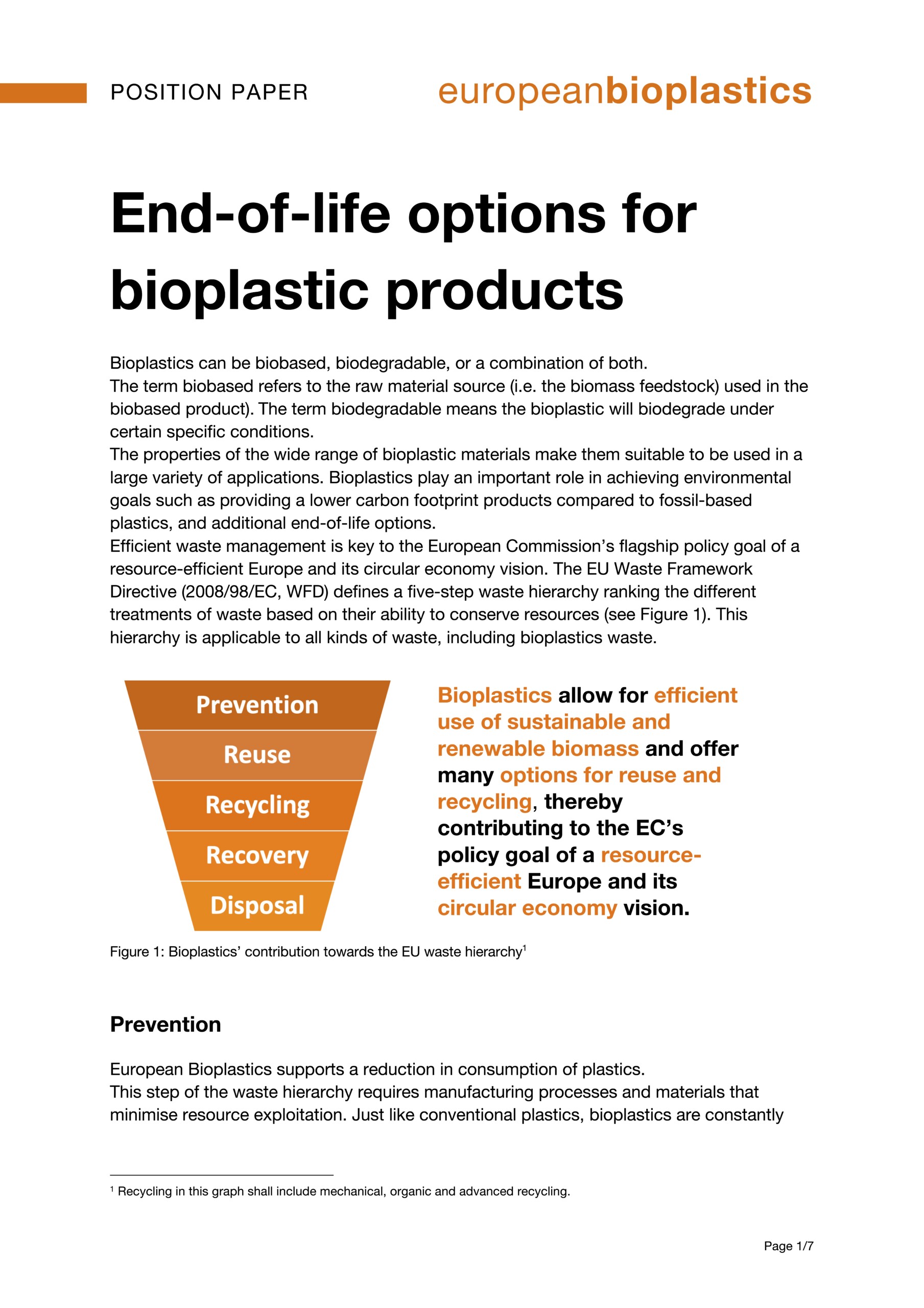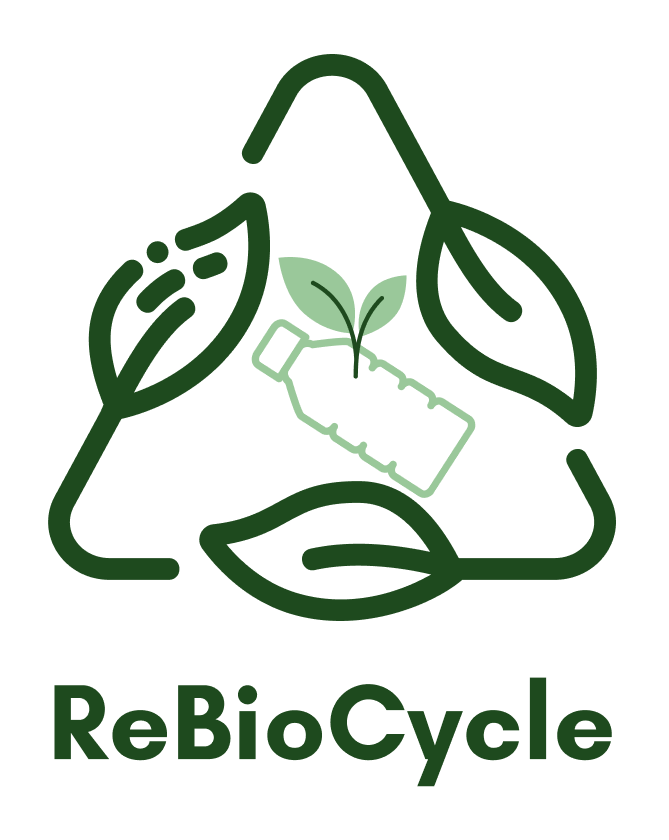Ultrasound-assisted production of lignin nanoparticles (BIOMAC)
Open the document The transition to a sustainable bioeconomy requires the development and validation of innovative technologies that exploit renewable resources while minimizing environmental impact. Lignin, a primary byproduct of the pulp and paper industry, represents a significant yet underutilized renewable resource that is currently mostly burned to generate heat and power [1]. [...]
